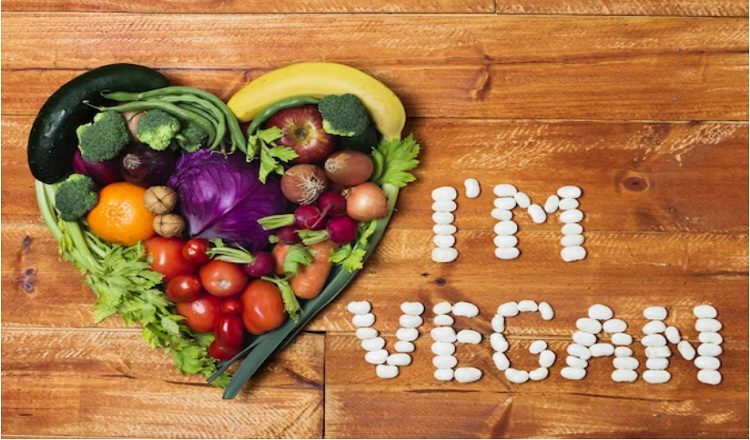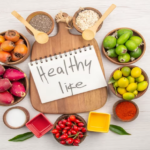
Greetings from the realm of veganism, a lifestyle that has become incredibly popular in recent years. The lifestyle of veganism forbids the consumption of any animal products, such as meat, dairy, and eggs. Fruits, vegetables, grains, legumes, and other plant-based foods make up a vegan diet.
The number of vegans in the USA has dramatically increased over time for a variety of reasons, such as considerations for animal welfare, the environment, and health benefits. The benefits and drawbacks of the vegan lifestyle must be understood, though, before you decide to jump on board.
In order to provide you a thorough grasp of what a vegan diet comprises, we shall explore both its benefits and drawbacks in this essay. Whether you are a committed meat eater or already live a vegan lifestyle, this article will give you useful advice on how to choose your food with the utmost knowledge. So let’s explore the world of veganism together while you sit back and grab a snack—one that is vegan, of course!
Advantages of a Vegan Diet
Beyond the health advantages of eating more fruits, vegetables, and whole grains, adopting a vegan diet has a number of advantages. A vegan diet is excellent for the environment and animal welfare in addition to being good for your physical health. A plant-based diet can lower the risk of developing chronic illnesses like heart disease, high blood pressure, and particular types of cancer, according to research on its health advantages. A vegan diet is also good for the environment since it uses less water and emits fewer greenhouse gases. You may lessen the water and carbon footprint connected with animal husbandry by consuming plant-based foods. Last but not least, a vegan diet does away with the necessity for animal products, which is crucial for anyone who care about animal welfare. By refraining from using animal products, you can contribute to lowering the demand for animal agriculture, which may improve conditions for animals.
Drawbacks of a Vegan Diet
While eating a vegan diet has many advantages, there are also some potential drawbacks to take into account. Risk of nutrient shortages is one issue, especially with regard to protein, iron, and vitamin B12. Incorporating these elements into vegans’ diets via fortified foods and supplements may require a considerable effort.
A vegan diet may have significant drawbacks, such as fewer food options and trouble dining out. It may be difficult to adhere to the diet in some contexts because many restaurants and social gatherings don’t provide vegan options.
A vegan diet may also cause some people to spend more money on groceries and have trouble locating vegan foods that are reasonably priced. This may be particularly relevant for people who are on a tight budget or live in less vegan-friendly places.
Overall, even if there may be certain drawbacks to take into account, many people discover that the advantages of a vegan diet surpass any difficulties they may experience. Making an informed decision based on personal needs and principles requires carefully weighing the pros and drawbacks.
Ethics and Moral Arguments
Veganism is a lifestyle choice that is also morally and ethically right. For many vegans, how animals are treated in the food sector is a crucial factor. They consider a plant-based diet to be the most moral and ethical option, and they oppose the exploitation of animals for human use. A vegan diet can also be in line with personal beliefs like social justice and ecology. People can lessen their carbon footprint and promote ethical labour practises in the food business by eliminating animal products. When choosing a diet, it’s vital to think about these moral and ethical ramifications because they can have a big impact on both the person and society as a whole.
How to Implement a Vegan Diet
Make sure you’re getting all the nutrients you need for good health when switching to a vegan diet. It’s important to pay attention to certain nutrients, such as protein, iron, calcium, and vitamin B12. Vegans can use a range of plant-based sources, including legumes, nuts, seeds, and fortified meals, to satisfy these needs. Supplementation might also be required in some circumstances. Additionally, meal preparation and planning can aid in ensuring a balanced diet.
It’s also crucial to be resourceful and willing to explore new foods and recipes if you want your vegan diet to succeed. There are many diverse and reasonably priced vegan options available, but it could take some investigation and testing. Finding new and interesting vegan dishes can be made easier by using resources like vegan cookbooks, plant-based grocery stores, and online recipes. Finally, it’s critical to be understanding and kind with yourself when you make the switch to a vegan diet.
Popular Vegan Diets: Benefits and Drawbacks
There are numerous ways to adopt a vegan diet, all of which have advantages and disadvantages. Raw vegan, high-carb low-fat vegan, and whole-foods plant-based vegan diets are a few of the most well-liked vegan diets.
Consuming entirely raw, unprocessed foods when adhering to a raw vegan diet might have health benefits but also increase the risk of vitamin shortages. Veganism that emphasises a high-carbohydrate, low-fat diet emphasises whole plant foods that can offer energy but may be hard for some people to digest. A whole-foods plant-based diet is the focus of veganism, which can have many health benefits but may call for careful meal preparation to guarantee enough nutritional intake.
In order to choose the vegan diet that best suits your lifestyle and nutritional requirements, it’s vital to weigh the advantages and disadvantages of each one. To maintain optimal nutrient intake, consulting a trained dietitian may also be advantageous.
Conclusion
In conclusion, a vegan diet offers benefits and drawbacks, and it’s important to make educated dietary decisions based on personal values, dietary requirements, and lifestyle considerations. Reduced risk of chronic illnesses, environmental protection, and animal welfare are some benefits of a vegan diet. On the other side, some disadvantages include the potential for nutrient inadequacies, a lack of variety in meals, and possibly greater shopping costs.
When choosing a diet, it’s crucial to take moral and ethical issues into account, such as how animals are treated in the food industry. Additionally, it’s essential to plan meals and take supplements when necessary to ensure proper nutrient intake on a vegan diet. There are also several well-known vegan diets to think over, each having advantages and disadvantages.
In general, choosing to eat a vegan diet should be based on one’s personal values and priorities as well as knowledge of its potential advantages and disadvantages. People can successfully adopt and maintain a vegan diet that satisfies their nutritional needs and is consistent with their ethical convictions by making informed decisions and looking for the right resources and assistance.
Read More You May Like:








